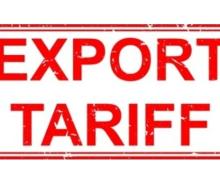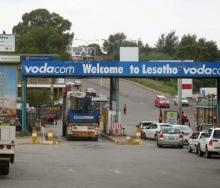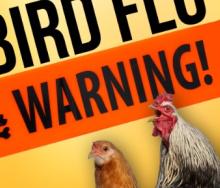Agriculture minister John Steenhuisen has given every indication that last week’s SA-US relationship reset delegation to Washington has done everything it can to dodge the tariff bullet fired by President Donald Trump on April 2.
Despite all the noise and drama following Trump’s provocative stunt in the Oval Office, when he played an inflammatory video about farm murders in South Africa, Steenhuisen described the trade meeting that was held behind closed doors thereafter as constructive and optimistic.
“The meeting was never going to be easy. It wasn’t going to be a cake walk. It was always going to be tough, but I do think we left Washington in better shape than when we went in,” he told 702.
Ahead of the visit, there was clear agreement that South Africa needed to restore and rebalance its import-export relationship with the country’s second-biggest trading partner.
To that extent, he said a lot of preparation had been done behind the scenes by his own department along with the departments of ministers Parks Tau (Trade, Industry and Competition), and Ronald Lamola (International Relations and Cooperation), as well as Khumbudzo Phophi (Presidency).
“The door is now open. I think the Americans have realised that we are serious about our trade relationship with them. We came with a serious package to put before them, and we’re serious about avoiding a 30% tariff regime.”
To avoid the steep “reciprocal tariff” regime announced in April, Tau “has been able to put on the table for the US trade representative a comprehensive package that we would be offering America”, Steenhuisen said.
Although he did not go into detail, he said that it was the trade and industry minister’s responsibility to drive that process.
Steenhuisen also reiterated that he was certain that, come July 9, when a 90-day pause on the new regime ends, South Africa would not be facing an increase of 30% in duties on certain exports sent to the US.
It would make our goods “completely unaffordable and uncompetitive”, he said.
Steenhuisen indicated that what South Africa was offering the US was better access for counter-seasonal fruit imports from the US, which most likely will include blueberries.
In the same vein he also mentioned gas imports from the US and the automotive trade, a sector that, like the agriculture sector, could be hard hit by punishing tariffs.
Steenhuisen furthermore indicated that South Africa’s avian flu restrictions against US poultry imports would most likely be relaxed.
“We’re looking at creating a fairer environment for continued trade with the US.
“I think what it (the trade meeting) was able to do was show how serious we are about our relationship with the US.”
Considering that some 660 US companies operate in South Africa and the foreign direct investment it represents, “we need to keep this strategic relationship going”, Steenhuisen said.
As for the African Growth and Opportunity Act (Agoa) that safeguards the duty-free access of certain exports to the US, the minister said its fate rested in the hands of the US Congress.
“It’s a separate process.”
He stressed that there would be adjustments to Agoa and should it survive the September renegotiation and renewal process, the agreement would probably continue in a different form.













